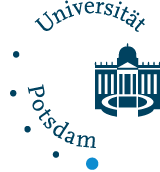Oliver Oswald, B.Sc. IFG, KSK GmbH
Where do you work and what is your job?
Disaster and crisis management are my profession. For the past eight years I am working for the KSK GmbH, a company specializing in civil protection, emergency planning and crisis management, in interdisciplinary projects responsible for research and development. My tasks are mainly project-related - we are currently involved in developing and setting up the rescEU Emergency Medical Team, a mobile field hospital for the European Union. As second project, we are conducting large-scale exercises in a second EU project to prepare international emergency teams for their work during natural disasters and major emergencies inside and outside Europe. Our projects in Germany focus on the training and development of emergency management staff and emergency structures for both state and private sector stakeholders. In recent years, we have had a joint research project with the Federal Ministry of Education and Research (BMBF) and the Institute of Geosciences at the University of Potsdam under the leadership of Gerold Zeilinger - oKat-SIM. This time, I was part of the team that implemented the results as trainer and not on the research side. The idea for that project was literally born on a napkin. Networks are everything. I am sure, there will be more to come.
What were your previous professional stations?
Alongside my studies, I volunteered for the German Federal Agency for Technical Relief (THW), qualified for work abroad because of my studies and then spent several years working all over the world during crises and natural disasters. From the typhoon in the Philippines, to West Africa in the context of Ebola, the earthquake in Nepal and currently in Turkey, I was able to gain a lot of operational and strategic experience both at THW and on secondment to the United Nations.
How did you get your current job?
At some point, I faced the problem that both worlds were increasingly coming into conflict with each other. During my studies Martin Trauth (a Professor at the Institute of Geosciences in Potsdam) suggested that I should combine civil protection and geosciences. I got to know and appreciate my current boss during an earthquake response mission in Nepal 2015. We stayed in touch after that. When he was looking for an interdisciplinary employee for a research project he reached out to me.
What attracted you to the job?
Working in crisis hotspots is very demanding; the psychological stress in particular cannot be underestimated. Nevertheless, the work is very satisfying. I always liked the mix of operational and strategic elements paired with technical expertise. At some point, I was at a crossroads as to whether I wanted to continue in the direction of humanitarian aid and the associated nomadic life or find a home in crisis prevention. That's what it became.
What are the most important skills you need for this work?
Crisis management is a very interdisciplinary field with many people from different professions and backgrounds. The most important skill is to be open to this interdisciplinary work. Sometimes the solution may be in the social field, sometimes in the intercultural field, sometimes in process management and sometimes in the geosciences. Together, this becomes a robust concept. Because the work can be very technical and many nationalities are involved, intercultural competence and cooperative working are essential. In addition to stress management and increased personal resilience, humility before Mother Nature is helpful - you are never above nature and never have complete control over the situation, any other attitude costs human lives.
What does a typical working week look like for you?
Dynamic - either working from home or at a training course, exercise or event somewhere in Europe. Nowadays, a lot of things are done digitally, but also very practically on site. I've been able to travel to places I never had on my bucket list and see the world - I'm constantly working on my understanding.
What do you like about your job and what challenges you the most?
I like seeing the impact of my work and (somewhat idealistically) try making the world a little better. My projects allow me a high degree of creative freedom. I really appreciate being able to draw on my expertise in geosciences and civil protection and to understand the world as a complex system. And sometimes it is reassuring to create a meaningful map or to test whether I can still identify all the minerals in a rock.
How much of the knowledge you acquired during your studies do you need in your job?
Speaking of rocks - mineral and rock identification unfortunately not enough, even if my colleagues are curious when I spontaneously stop and find a fossil or beautiful mineral in the gravel at our feet. Statistics, stochastics, error calculation, georeferenced data processing, an understanding of natural disasters and geodynamic processes and the ability to record, process and, above all, explain events not as static, but as a function of space and time. And somewhat more subtly, humility before nature and the realization that only the presence of humans can turn a natural event into a catastrophe.
Looking back, how do you feel about your geosciences degree at the University of Potsdam?
Mixed emotions - I started my academic education in the transition phase from the Diploma to the Bachelor system, at a time when the institute felt like a beehive, and I was simply incredibly lucky to spend time with great people who challenged and encouraged me. The International Field Geosciences Bachelor's program was a stroke of luck for me back then. I still benefit from it today.
Do you have any tips for our graduates for a successful career start?
Get it done! The degree is a necessary formality, the actual learning happens away from exam preparations and the seminar room. And then you realize how much more there is to learn. The adventure takes place outside - not in the lecture hall.

